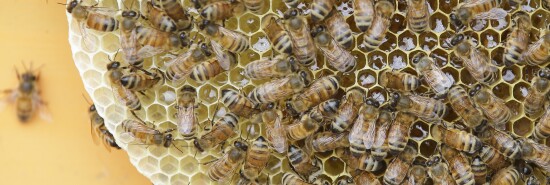
The population-control movement remains grounded in the assumption that humans are bad
Timothy P. Carney
Video Embed
How does a man like Paul Ehrlich maintain enough credibility to be the star of a 60 Minutes segment?
Ehrlich is a bug scientist who predicted in 1968 that huge portions of the world population were going to starve to death because the planet simply couldn’t sustain the current population. Since then, the world population has doubled, worldwide hunger has fallen, poverty has plunged, pollution has fallen, and recently, the percentage of the Earth used for agriculture has even started falling.
NO, IT’S NOT RACIST OR EUGENICIST TO SUPPORT BIG FAMILIES
Very few people in the past 100 years have been so completely wrong or so completely discredited as Ehrlich. When this fact is pointed out to him, he hides behind the fact that his work was peer-reviewed — as if this makes up for all of his predictions being wildly inaccurate. And he hasn’t recanted his horribly wrong analysis, yet he continues to get trotted out as an expert on the negative effect that people have.
Why? Because his basic message, that people (particularly “other people”) are bad, resonates with a large portion of the population, especially the kind who inhabit news media and academia.
“People, people, people, people” was Ehrlich’s description of what is wrong with the world. Ehrlich first became convinced that overpopulation was a deadly threat when he saw a bunch of Indian people hanging out — and you can draw your own conclusions about this belief from that fact and from the language he uses to describe it.
It was “one stinking hot night in Delhi,” Ehrlich wrote, when he became so disgusted by the idea of people. Delhi’s “streets seemed alive with people. People eating, people washing, people sleeping. People visiting, arguing, and screaming. People thrusting their hands through the taxi window, begging.”
Despite the lack of evidence behind the overpopulation scare, “people are bad” is a very common opinion. “Eight Billion People in the World Is a Crisis, Not an Achievement,” academic Naomi Orestes wrote in Scientific American recently. “More people will not solve the problem of too many people.”
Two writers at the Atlantic have a great take on this persistent misanthropy.
“Scolding regular people for contributing to climate change is out of fashion,” they write. “But scolding people for making new people is, apparently, totally fine. Many climate activists say the worst thing an individual can do, from an emissions perspective, is have kids. The climate-advocacy group Project Drawdown lists ‘family planning and education,’ which are intended to lower fertility rates, as leading solutions to global warming.”
The writers, Vijaya Ramachandran and Alex Trembath, note the dark places toward which the overpopulation crowd point:
“If people, people, people are the primary threat to the natural world, what is the solution? Uncomfortable as it is to say, conservationist and eugenicist theories have long been intertwined.”
Sometimes, eugenics is presented as a way of weeding out the worst elements of the human species, but even that is too generous. It’s really grounded in the belief that, in general, humans are bad. Because there will always be people who hate other people, that belief in humanity’s essential badness will never disappear — and so the population-control movement will never shut up, no matter how badly their ideas fare in the real world.
